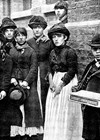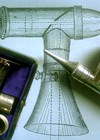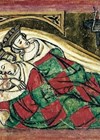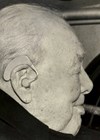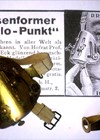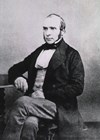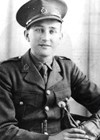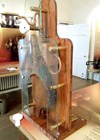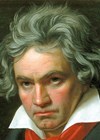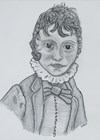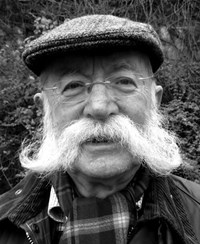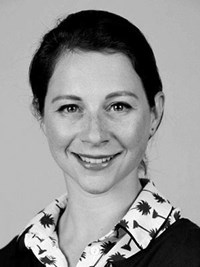History of ENT
Guillotines from Joseph‑Ignace Guillotin to Greenfield Sluder
Joseph‑Ignace Guillotin. The politician and physician Joseph-Ignace Guillotin (1738-1814) was so disgusted by brutal head and shoulder injuries sustained in ‘failed attempts’ by drunken axe-wielding executioners during the French Revolution that he and surgeon Antoine Louis (1723-1792) advocated not only...
The Matchgirls and Phossy Jaw: a striking tale of industrial action
Poor working conditions, long hours, low pay – and the prospect of a dangerous and disfiguring osteonecrosis of the jaw. These were the triggers for the 1400 ‘matchgirls’ of the Bryant and May factory to strike in July 1888, a...
The first compact auriscope: the 1865 speculum auris of Dr Brunton
Bringing light into darkness can also be a task for the physician. With the advent of endoscopy (initially by reflecting light into body cavities), new methods of diagnosis and treatment became available to the otologist. In 1865, the Scotsman John...
The death of Attila the Hun, a 70s film and Japanese cartoons
The 6th century Gothic monk, Jordanes, tells us that Attila the Hun, the notorious and allegedly merciless barbarian (who was a prime mover in the fall of the Roman Empire), died of a nosebleed on his wedding night in 453...
Churchill, Stephen Poliakoff’s dad and a KGB-bugged hearing aid
Winston Churchill was prime minister of the United Kingdom on two occasions: firstly from 1940 to 1945 and then from 1951 to 1955. He was famed for his acute wit, insight and leadership qualities that helped him navigate the British...
The golden nose – reshaping the nose 100 years ago
Wolf Lűbbers (with the golden nose). Who with a crooked nose would not embrace the chance to go to bed in the evening wearing a surgical device and wake up the following morning with a straight one? And all this...
The ear, nose and throat anaesthesia practice of Dr John Snow (1813-58)
News of the first successful public demonstration of general anaesthesia in Boston, Massachusetts in October 1846 reached Britain in mid-December of that year. James Robinson, a London dentist, gave the first anaesthetic in the United Kingdom when, on 19 December,...
Did you ever meet Draffin on your travels?
Draffin’s rods or bipods are a well-known ENT instrument. Before their invention in 1951, the attendant anaesthetist or nurse was obliged to support the mouthgag during tonsillectomy. Their originator, David Alexander Draffin (born in 1917 in Ballybey, Co Monaghan), was...
Erwin Geising and the fall of the Third Reich
It’s mid 1944. The allies have landed at Normandy, the Germans have abandoned Rome and are retreating from the Russians on the eastern front. The Fuhrer was in way over his head and out of his depth. Watching this series...
Erasmus Darwin and the larynx – but why is it where it is and when?
Charles Darwin’s grandfather was not only on to where we all came from by the end of the 18th century, but dared to declare it in verse whilst resident in Lichfield Cathedral Close. This needed exceptional temerity, since not only...
The Dilemma of Beethoven’s Deafness
Beethoven was one of the world’s greatest musicians, and his deafness is well known. Many details of his medical conditions are known, and various theories of his hearing loss have been proposed. Ludwig van Beethoven was born in 1770 in...
A ‘rye’ tail – the fatal illness of Lord Boringdon, a Regency tragedy
The anonymous privately-printed book, Some Account of Lord Boringdon’s Accident, describes in deferential terms a case of aspiration of a foreign body and its sequelae. Today aspirated foreign bodies are serious but curable injuries; before the invention of the bronchoscope...



